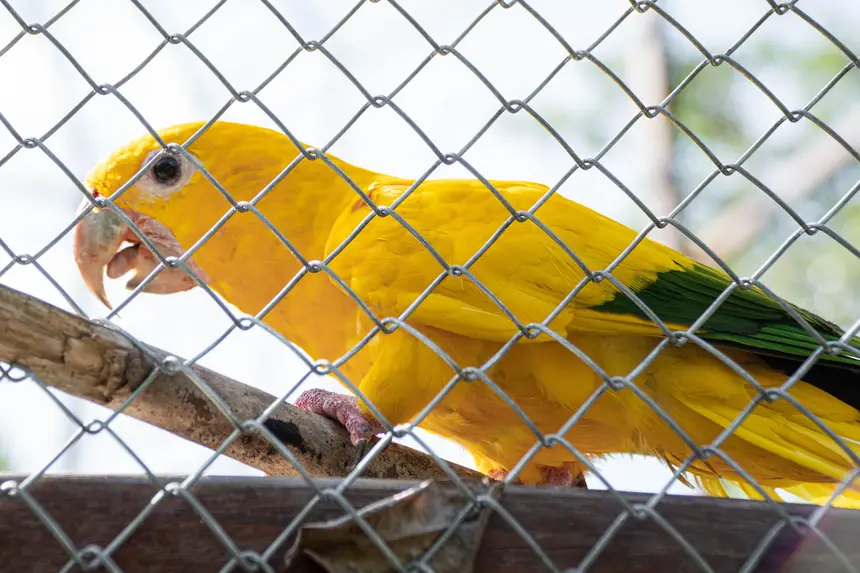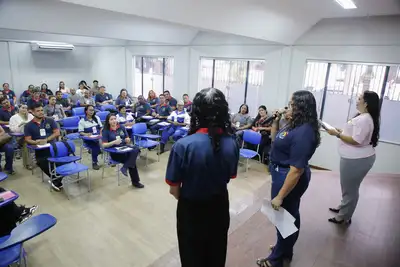New Ararajubas Arrive in Belém and Mark Another Advance in the Conservation Effort for the Species
Next month, the 16 birds that have just arrived and the 14 that were already on Pará soil will be reintroduced into nature, in a symbolic release during the COP30 period in the capital of Pará.
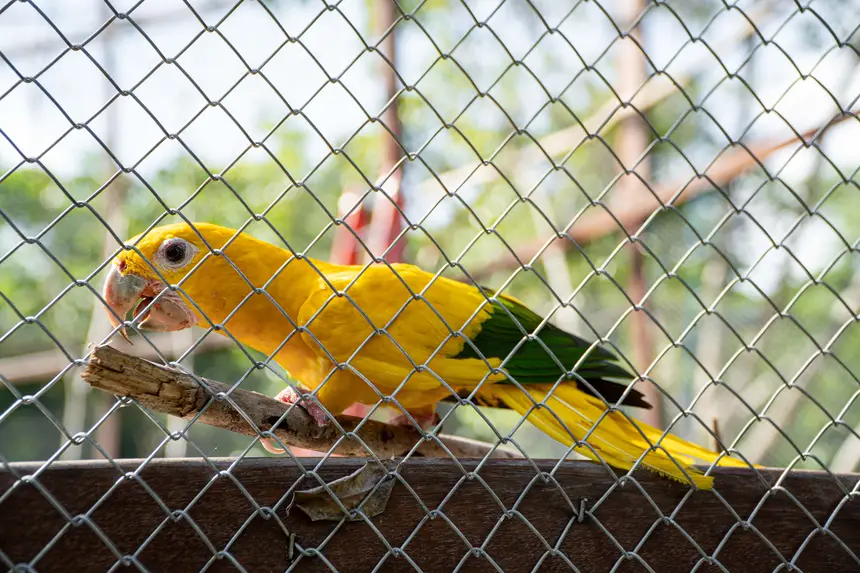
A new group of 16 Ararajubas (Guaruba guarouba) has arrived in Belém to reinforce the species' reintroduction project in the skies of the Metropolitan Region. The birds came from the aviary of the Lymington Foundation, located in Juquitiba (SP), and join the 14 that were already on Pará soil. The work is conducted by the government of Pará, through the Institute of Forest Development and Biodiversity (Ideflor-Bio), in partnership with the Foundation, and symbolizes an important advance in the conservation of one of the most emblematic birds of the Amazon.
The animals were taken to the acclimatization aviary of the Utinga Camillo Vianna State Park, where they undergo a period of adaptation to the climate, food, and Amazonian environment. Next month, all 30 birds are expected to be reintroduced into nature, in a symbolic release during the United Nations Conference on Climate Change (COP30), which will be held in Belém. This action will mark Pará's commitment to biodiversity preservation and the appreciation of native species.
Collective Effort - Since 2017, the Ararajuba Reintroduction and Monitoring Project in the Metropolitan Region of Belém has already returned 58 birds to nature. The president of Ideflor-Bio, Nilson Pinto, celebrates the results and highlights the collective effort involved. "We can already assure that there is a generation of Ararajubas that is genuinely from Pará. It has been eight years of dedicated work, research, and cooperation between public and private institutions, which have ensured the return of this symbol of the Amazon to our skies," he stated.
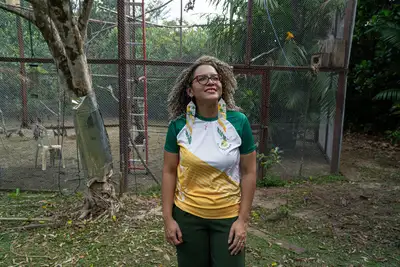
The Biodiversity Manager of Ideflor-Bio, Mônica Furtado, explained that the new birds are being trained in the newly renovated aviary of Utinga State Park, in preparation for their release. "These 16 Ararajubas join the other 14 that were already with us and will be released in honor of COP30. Returning these birds to the skies of Belém has enormous symbolic and environmental value. The Ararajuba is an endemic species of the Amazon, and about 80% of its population occurs in Pará. Having it back in nature, especially at this moment when the world will be focused on Belém, is a historic milestone for the conservation of our fauna," she emphasized.
Mônica recalls that the project has already recorded significant milestones, such as the birth of seven Ararajuba chicks in the aviary of Utinga Park itself. "These chicks were born here, in the forest, and not in captivity. They are what we call 'belenense jubinhas'. This natural reproduction demonstrates that the environment is suitable and that the reintroduction work is achieving sustainable results," she added.

Preparation - The biologist Marcelo Villarta, from the Lymington Foundation, explains that the acclimatization process is fundamental for the success of the reintroduction. "These birds were born in captivity and need to be trained for life in the wild. Here they learn to recognize native foods, such as açaí, muruci, and araçá, and to develop the necessary musculature for long flights. They also adapt to living in groups, which is essential for survival in nature," he said.
Villarta emphasizes that reintroduction is a continuous process. "Our goal is to form a self-sustaining population. Therefore, reintroductions happen in stages, always with new groups being integrated. It is a permanent challenge that requires care and patience, especially because the reproduction of Ararajubas depends on very specific environmental conditions," the biologist explained.
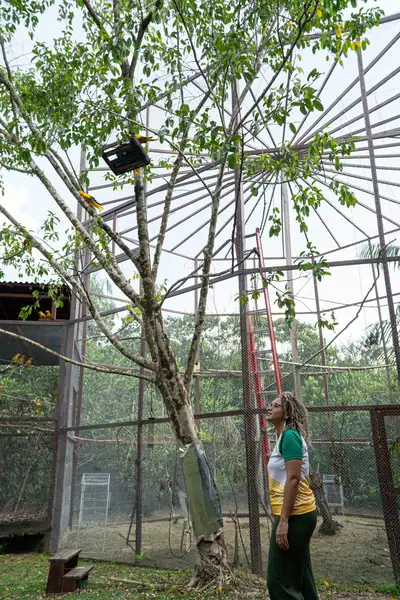
In addition to physical and behavioral preparation, the Ararajubas undergo a socialization process, essential for forming flocks. "In nature, they live in large family groups, with up to ten individuals, where there is cooperation among members. Some feed while others watch the environment. This collective behavior is one of the keys to the species' survival," Villarta observed.
Continuity - The project gained new momentum with the signing of the Collaboration Agreement between Ideflor-Bio and the Lymington Foundation in April 2024, which ensured two more years of execution. By November of this year, the expectation is that another 30 Ararajubas will be released, increasing the population and consolidating the recovery of the species in the region.
For the president of Ideflor-Bio, Nilson Pinto, the arrival of the new birds symbolizes more than an environmental action — it is a message of hope. "The reintroduction of the Ararajubas is an example that it is possible to reconcile conservation, science, and social engagement. Seeing these birds flying over the skies of Belém again is witnessing the strength of life and Pará's commitment to a sustainable future," he declared.


